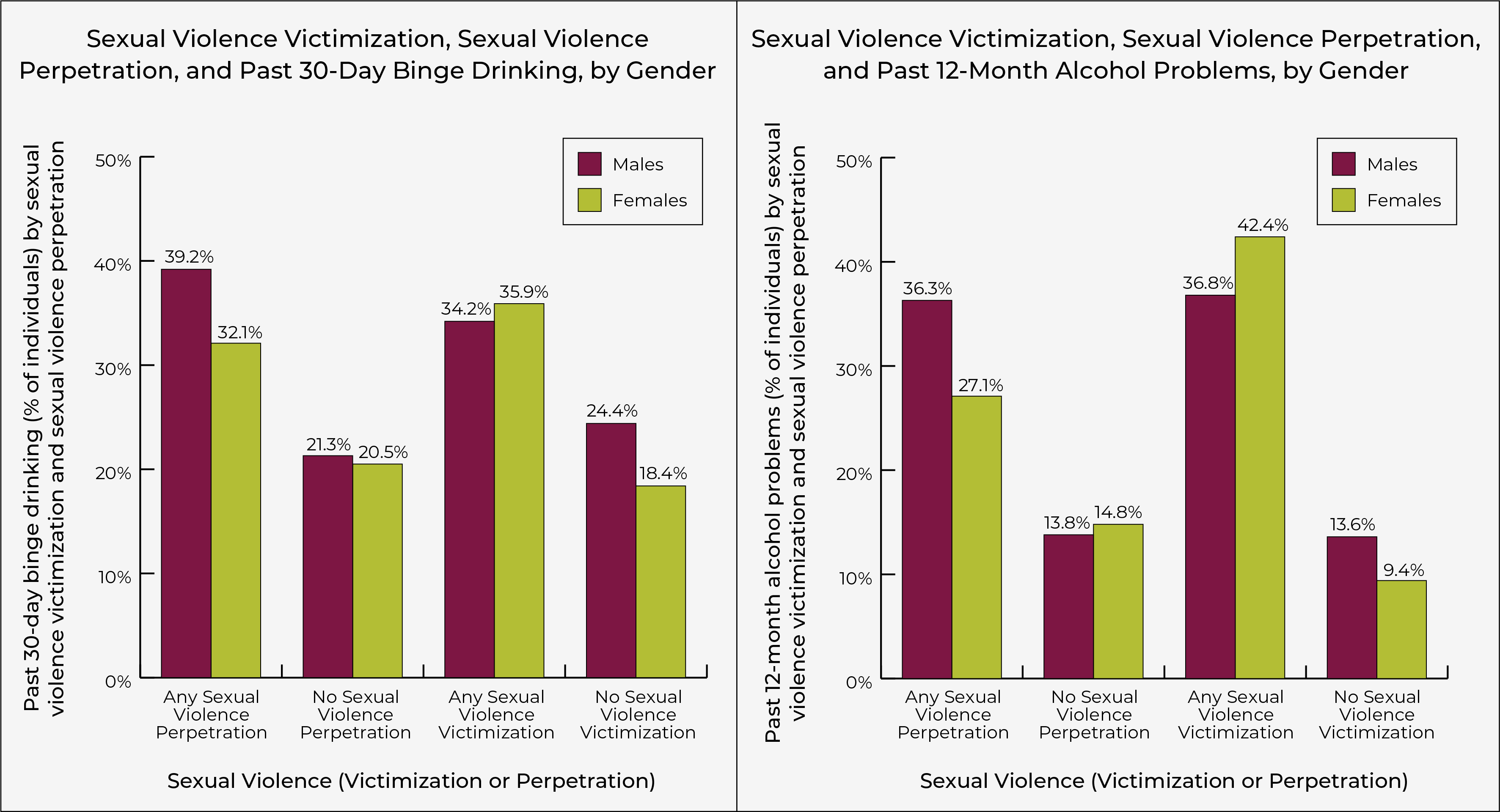Editor's Note: Can you spare five minutes to tell us your thoughts on The BASIS? Your responses to this short questionnaire will help us improve this free resource and better meet your expectations. Thank you!
Sexual violence is any sexual act that happens without the victim’s freely given consent. Drinking alcohol often co-occurs with sexual violence; half of all incidents involve alcohol use by the victim, perpetrator, or both. This week, The DRAM reviews a study by Christal L. Badour and colleagues that examined gender differences in alcohol-related outcomes and recent sexual violence victimization or perpetration among adolescents.
What were the research questions?
Is past-year sexual violence (victimization and perpetration) associated with past-month binge drinking and past-year alcohol problems in a sample of high school students? Do these associations differ by gender?
What did the researchers do?
Students from 26 high schools (N = 16,992) participated in a cross-sectional survey about sexual violence and drinking. The survey asked participants how often, in the past year, they had perpetrated or experienced sexual violence overall, and for three sexual violence tactics: sexual coercion, physically forced sex, and drug/alcohol-facilitated or incapacitated sex. Participants also described any past-month binge drinking and past-year alcohol problems. Badour and colleagues used chi-square tests to determine gender differences in rates of sexual violence victimization and perpetration overall, and according to each tactic. They also used tests of effect modification to investigate gender as a modifier in the association between sexual violence victimization and perpetration and the two alcohol-related outcomes.
What did they find?
Among both boys and girls, individuals who reported recent sexual violence victimization or perpetration (overall and for each sexual violence tactic) were more likely to report past-month binge drinking and past-year alcohol problems (see Figure). Sexual violence victimization and perpetration were more strongly associated with past-year alcohol problems than with past-month binge drinking.
Some notable sex differences were observed. Past-month binge drinking and past-year alcohol problems were more strongly associated with sexual violence victimization among females than males. Boys who recently perpetrated drug/alcohol-facilitated or incapacitated sexual violence were more likely to report binge drinking and alcohol problems than those who didn’t; on the other hand, girls who were recent victims of drug/alcohol-facilitated or incapacitated sexual violence were more likely to report these two alcohol outcomes than those who weren’t.

Figure. The figure on the left depicts the percentage of individuals who experienced any or no sexual violence victimization and any or no sexual violence perpetration who reported past 30-day binge drinking, by gender. The figure on the right depicts the percentage of individuals who experienced any or no sexual violence victimization and any or no sexual violence perpetration who reported past 12-month alcohol problems, by gender. Click image to enlarge.
Why do these findings matter?
Sexual violence prevention and education strategies should include a component on safe alcohol use. However, future research is needed to understand the temporal relationship between sexual violence and alcohol-related outcomes; some kids might be drinking heavily to cope with sexual trauma. Gender differences, particularly in regards to drug/alcohol-facilitated or incapacitated sex and alcohol outcomes, indicate that there may be gender-specific risk factors associated with this sexual violence tactic. Prevention strategies should be tailored to address gender-specific risk factors.
Every study has limitations. What are the limitations of this study?
The cause-and-effect relationship between sexual violence and alcohol-related outcomes cannot be determined from this study due to its cross-sectional design. This study relies on self-report measures, which may introduce bias into the results. Study participants were from public high schools in one state, so results may not be generalizable.
For more information:
The National Institute on Alcohol Abuse and Alcoholism has tips and resources for people struggling with problem drinking. For additional drinking self-help tools, please visit The BASIS Addiction Resources page. The Rape, Abuse & Incest National Network has resources for sexual assault survivors and their loved ones.
— Kira Landauer, MPH
What do you think? Please use the comment link below to provide feedback on this article.




